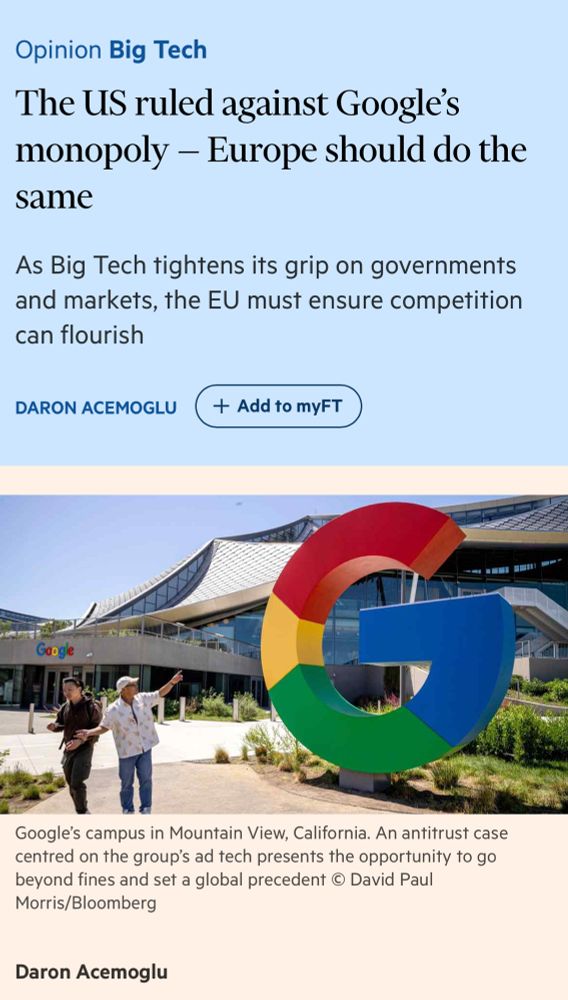Nicolas Petit
Reposted by: Nicolas Petit, Joanna Bryson
www.hertie-school.org/en/study/fun...

Reposted by: Nicolas Petit
www.politico.eu/article/asml...




Reposted by: Nicolas Petit, Steve Peers
Elon Musk seems to be arguing big digital businesses should have a "fairness" obligation -- this is the very core of EU laws he blasts so frequently
on.ft.com/4lozXiH

by Simon Hix — Reposted by: Nicolas Petit, Ben H. Ansell, David M. Farrell , and 2 more Nicolas Petit, Ben H. Ansell, David M. Farrell, Juho Härkönen, Simon Hix
www.economist.com/europe/2025/...

Reposted by: Nicolas Petit
Chinese officials discuss sale of TikTok to Elon Musk.
www.bloomberg.com/news/article...

Reposted by: Nicolas Petit
While you’re at it, European Commission: kill the Digital Fairness Act. Thanks.


Reposted by: Nicolas Petit
In the latest #EUIUpFront, @competitionprof.bsky.social, Head of the @eui-law.bsky.social, & @ivanenadic.bsky.social, @eui-schuman.bsky.social Research Fellow, discuss the shifting balance of power between tech giants & the state.
📹 Watch: buff.ly/a6gdlPG
Less ideal that consolidation is unfolding along national lines.
The big question: will stronger national champions finally unlock real cross-border banking in the EU?

Legal scholars claim Amazon dominates without rivals.
Economists claim algorithms collude.
When theory fails to match reality… ignore reality?


1️⃣ Integration through law bureaucratised Europe breaking our ability to build
2️⃣ Infatuation w/ a European 3rd way led to dismiss existing solutions that scale
works across energy, health, digital, …



